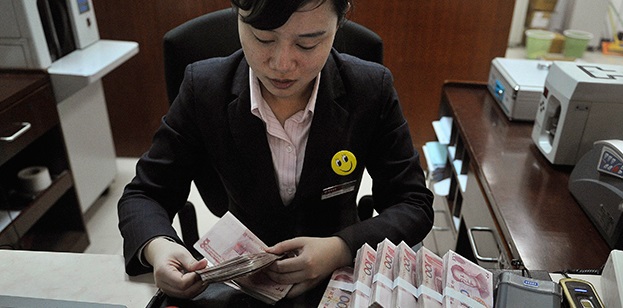Jokowi Pledges Support for the Asian Infrastructure Investment Bank

Indonesia’s absence at the launch of the Asia Infrastructure Investment Bank is probably due to its political transition and is not indicative of US pressure on the new administration.
Background
Joko “Jokowi” Widodo and his Foreign Minister, Retno Marsudi, met with the Chinese Foreign Minister, Wang Yi, on 3 November ahead of the Asia Pacific Economic Co-operation (APEC) meeting in Beijing. Jokowi has confirmed that he will be attending the meeting and, according to Xinhua, the Chinese state-owned news agency, the new president also expressed his support for the Chinese-led Asian Infrastructure Investment Bank (AIIB).
Comment
Indonesia joined South Korea and Australia in declining to sign a memorandum of understanding (MoU) to establish the AIIB on 24 October. At various times since the initiative was first announced by Chinese President Xi Jinping in October 2013, officials from these three countries have expressed interest in joining the AIIB. Former Indonesian President, Susilo Bambang Yudhoyono, was initially supportive of the initiative, indicating that Indonesia welcomed increased Chinese investment in railways, bridges, highways, ports and airports. Unsurprisingly, given their perception of the AIIB as a challenge to the World Bank and Asian Development Bank (ADB), the United States and Japan were also absent. India, Malaysia, Thailand, Vietnam, Laos, Singapore and the Philippines were amongst 21 countries to sign the MoU.
The new Indonesian government has not yet expressed an official position on the creation of the AIIB claiming that it requires time to evaluate the Chinese proposal. It is widely believed that the US exerted pressure on Indonesia to discourage it from supporting the creation of the bank. At Jokowi’s inauguration on 20 October, US Secretary of State John Kerry personally spoke to Australian Prime Minister Tony Abbott to persuade him not support the AIIB. Similar conversations could have been held with Jokowi. It is possible, and probably more likely, that Indonesia was absent from the signing of the MoU simply because the new government has not yet had time to review the implications of joining the AIIB. The signing of the MoU in Beijing took place only four days after Jokowi’s inauguration and several days before the announcement of his new cabinet.
Indonesian Finance Minister Bambang Brodjonegoro has stated that the decision to enter and contribute to the bank is still awaiting approval from the President. Brodjonegoro has suggested that Indonesia would need to be involved in the functioning of the bank because he believes that infrastructure financing in Asia cannot be achieved through existing multilateral institutions, such as the Asian Development Bank (ADB) and the World Bank. There are grounds for this argument. During the campaign, Jokowi promised to construct 2,000 kilometres of new roads, 10 airports, 10 new ports and establish 10 new economic zones. The ADB has estimated that over the next decade Asia will require at least US$8 trillion invested in upgrading infrastructure. Likewise, Indonesia is projected to require at least US$300 billion over the same period. The World Bank and the ADB will, most likely, be unable to provide this kind of funding in the time that it is required.
The new President has indicated that he expects Chinese help in delivering the promises he made during the election campaign. Foreign Minister Wang stated, ‘We want to participate in developing Indonesia’s economy. We want to co-operate with Indonesia in developing infrastructure, industrial zone and natural resources’. As Bambang Soesatyo, an Indonesian politician, has pointed out, however, any decision made by Jokowi must be carefully reviewed by the government. He indicated that relations with the United States and China need to be considered before a final judgement is made.
Questions remain about the governance, security and transparency of the new bank. Australia has been reluctant to join for these very reasons. In the Indonesian case, however, it stands to gain more by joining than by remaining outside of the institution.
Mervyn Piesse is a Research Analyst in the Indian Ocean Research Programme of Future Directions International. This piece was originally published by Future Directions International and is republished with permission.


